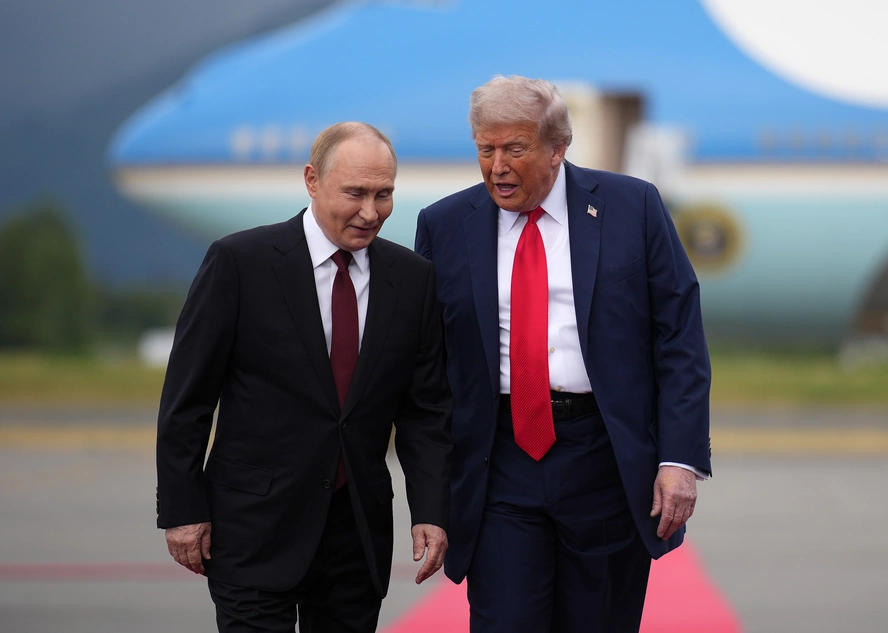The planned summit between President Donald Trump and Russian leader Vladimir Putin in Budapest has been canceled — just a week after Trump himself announced it. According to Politico, the White House confirmed on Tuesday that, following a phone call between Secretary of State Marco Rubio and Russian Foreign Minister Sergey Lavrov, the meeting would no longer take place.
“Secretary Rubio and Minister Lavrov had a productive conversation. Therefore, an additional in-person meeting between them is unnecessary, and there are no plans for President Trump to meet President Putin in the immediate future,” a White House official said on condition of anonymity.
Moscow Stands Firm
The cancellation of the summit reflects another deadlock in negotiations: Russia continues to refuse any concessions on ending its war in Ukraine. At a press conference in Moscow, Lavrov said he informed Rubio that Moscow’s position remains unchanged — a peace deal must come before any ceasefire.
“U.S. officials, as I understand it, have concluded that Russia’s stance remains within its original maximalist demands,” Lavrov noted. “Moscow has not altered its positions compared to the understandings reached in the talks between Putin and Trump in Alaska.”
According to Lavrov, Russia still insists on “eliminating the root causes of the conflict” — namely, Ukraine’s aspiration to join NATO and its deepening integration with Europe. Putin, Lavrov said, continues to question the legitimacy of President Volodymyr Zelenskyy, calls for new elections, demands an end to the “persecution of Russian speakers,” and insists that Ukraine must never join NATO.
“We remain fully committed to this formula, and I confirmed it yesterday in my conversation with Marco Rubio,” Lavrov added.
The minister also questioned whether Putin could even travel to Budapest, given Poland’s threat to enforce the International Criminal Court’s arrest warrant should the Russian president enter its airspace.
A Diplomatic Breakdown
The previous Trump–Putin meeting took place just two months ago — in July, in Alaska. Trump left without concrete results, though he claimed that Putin “wanted peace.” Yet Moscow refused to hold direct talks with Kyiv and continued its aerial assaults on Ukrainian cities.
After another phone call with Putin last week, Trump once again declared that “great progress” had been made and that the two leaders planned to meet in Budapest. But the following day, while hosting Zelenskyy at the White House, the president refused Ukraine’s request for U.S.-made Tomahawk missiles to strike targets inside Russia. Instead, Trump urged Kyiv to “make concessions for peace” — a proposal that effectively aligned with Russia’s demands.
“Signals From Washington” and Moscow’s Response
Lavrov stressed on Tuesday that Moscow rejects “signals coming out of Washington” suggesting an end to the war along the current front line — an idea Trump has been promoting in recent days.
“The main issue is not the location or the timing of the talks, but how we will proceed substantively,” Lavrov said. “We remain guided by the objectives on which we reached a broad understanding in Anchorage.”
As Politico notes, Russia continues to display intransigence, while the White House, facing pressure from NATO allies, appears eager to avoid a diplomatic crisis.
Trump’s Peacemaking Ambitions
Earlier in October, Trump scored a diplomatic win in the Middle East by helping broker a ceasefire between Israel and Hamas. The success bolstered his confidence in his ability to mediate conflicts, and his advisers hoped to channel that momentum toward resolving the Russia–Ukraine war.
But, according to Politico, the situation changed rapidly: new fighting between Israel and Hamas now threatens the fragile truce, while Moscow makes it clear it has no intention of ending the war.
Europe’s Cautious Reaction
Sources in Brussels told Politico that European diplomats were caught off guard by Trump’s sudden announcement of a new meeting with Putin. One senior EU official, speaking on condition of anonymity, described it as “a textbook case of the last-person-he-talked-to effect” — a reference to Trump’s tendency to publicly align with whoever he last spoke to.
Still, the absence of open criticism from European leaders suggests they have learned to better navigate relations with the U.S. president.
“I would expect visits to Washington by European leaders and closer coordination in the near future,” the EU official said.
Trump’s choice of Budapest as the venue also sparked frustration within the EU — not only because Hungary is a member state, but also because the city carries painful symbolism for Ukraine. It was in Budapest, under the 1994 Budapest Memorandum, that Ukraine surrendered its nuclear arsenal in exchange for security assurances.
As Politico concludes, the cancellation of the Trump–Putin summit underscores once again that, despite the White House’s rhetoric about “progress,” the two sides remain irreconcilably divided. Moscow continues to demand Ukraine’s capitulation, while Washington — for all its talk of peace — remains unwilling to accept such terms.
This article was prepared based on materials published by Politico. The author does not claim authorship of the original text but presents their interpretation of the content for informational purposes.
The original article can be found at the following link: Politico.
All rights to the original text belong to Politico.


















